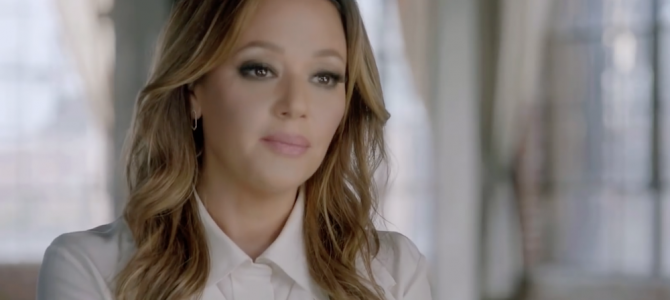
For anyone who knows where to look, the abuses carried out in the name of Scientology aren’t a secret. There have been countless books, investigative pieces, and blog posts written on the subject, from defectors and journalists alike. Tales of harassment against anyone who dares cross the religion—even IRS agents responsible for determining the organization’s tax exempt status—are commonplace.
Because of the “religion’s” famous litigiousness, as well as the willingness of its strongmen to intimidate those who speak out, tales of abuse were slow to emerge for its first few decades. Journalists like Paulette Cooper who dared to try saw their lives near-destroyed by its henchmen. Another journalist passionate about covering the “Church,” Tony Ortega, has spent his professional life chronicling the news Scientologists don’t want to see published on his blog, the Underground Bunker.
Unfortunately for Scientology, however, those tales of abuse are about to go mainstream.
Scientology’s Abuses Are About To Go Mainstream
A new A&E eight episode mini-series, “Leah Remini: Scientology and the Aftermath,” debuted last week and will air again on Tuesday. It seems likely to widen the audience of those aware of Scientology’s abuses: after the first show, Deadline reported it was “A&E’s highest-rated series launch in more than two years, logging 2.1 million viewers Tuesday night. Of that crowd, 1.1M fell in the target 25-54 demographic group, and 913K in the younger 18-49 demo. The premiere also ranked among the top new unscripted launches on cable in 2016 … For comparison’s sake, Going Clear, HBO’s docu profiling eight former Church of Scientology members, clocked 1.65 million viewers in a Sunday premiere back in March 2015.”
In content, there is little unique to Remini’s series compared to that of many other Scientology exposés. The main characters—including former international spokesman for Scientology Mike Rinder and Amy Scobee, the former head of its Celebrity Center in Los Angeles—have been mainstays of the anti-Scientology crusade since their high-profile defections.
What garnered the record number of viewers for A&E was the inclusion of Remini’s star power. Remarkably, given her fame, Remini plays the role of facilitator—not star. She introduces the series with her own story as a member and eventual defector from Scientology, but makes it clear that the series’ focus will be others’ tales. Many experienced more abuse than Remini experienced, protected as she was by her celebrity. Others were physically assaulted by Church executives, including its version of the “Pope,” David Miscavige. Some were held hostage within Church properties because its authorities feared their defections. Teasers for future episodes referenced forced abortions and more.
How Scientology’s Fascination With Celebrity Backfired
The common thread between Remini’s tale and those of her fellow “heretics” was that of “disconnection.” Church members are expected to disconnect from their families, even their own parents or children, if they’re deemed enemies of the organization. In her book “Troublemaker,” Remini discusses her brother-in-law’s painful choice between his wife and her family (including Remini), and his entire biological family, who still practiced Scientology.
In the first episode of Remini’s series, Scientology’s fascination with celebrity is exposed as an avenue for expanding the exposure and influence of the Church, from its early days to present. It boasts high-profile devotees like Tom Cruise, John Travolta, and Kirstie Alley, and capitalizes on their celebrity for money and influence. The downside for Scientology with these celebrity endorsers is becoming apparent with Remini’s high-profile defection and activism. The same celebrity Remini used to promote the Church’s teachings now adds considerable firepower to her quest to expose its abuses.
In the first episode, Remini explains that the people who reached out for help after her book hit the top of the New York Times bestseller list inspired her to keep up the fight. At her first book signing for “Troublemaker,” it became apparent how many individuals looked to Remini not as an actress, but instead as a potentially powerful activist. Of the hundreds present, Remini could be seen deeply engaged in conversation with many attendees who wanted more from the actress than a simple autograph—they wanted to share their stories. Standing in line waiting for my own copy to be signed, I overheard several conversations of those whose lives had been destroyed by their involvement in what many call a cult.
In their attempts to cease production and stop the airing of the A&E series, Scientology pulled out all the stops it could. They sought to intimidate Remini, even mid-taping in the streets of Los Angeles. In the first episode, Remini shares that after her book was published, she intended to close the book on her involvement with Scientology in every way, including her activism against the Church. While those who reached out to Remini may have inspired her continued work to expose Scientology, you can’t help but think that Scientology’s own quest to silence a born and bred daughter of Brooklyn may be backfiring in a potentially catastrophic way.









